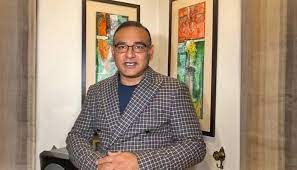Aamir Sohail, a former captain of Pakistan and a witness to match-fixing, says the flood of legal revenue into cricket, which has seen players earn millions in championships, is a good thing because it lessens the temptation for corruption.
Aamir Sohail
Sohail’s prime playing years were from 1990 to 2000, which is far too soon to take advantage of the T20 revolution that the Indian Premier League started.

However, the 55-year-old, who exposed match-fixing in Pakistan in the 1990s — a term he despises —
It’s good that players now make good money, said Sohail, who participated in 156 one-day internationals and 47 tests.
Although there are temptations, there hasn’t been any wrongdoing reported recently.
“So I think that’s very good for the game if things are under control and cricketers, are getting legitimate money.”

After the nation’s cricket board established a judicial commission to look into allegations of match-fixing made by a number of players, including Sohail, Salim Malik, the former captain of Pakistan, was given a lifetime ban for match-fixing and pace bowler Ata-ur-Rehman was charged with perjury.
The two Test matches involving Pakistan that begin on Saturday will be called by Sohail, a TV commentator in Sri Lanka, who also added that current players shouldn’t be grumbling about playing too much cricket.
Sohail, a left-handed opener who was instrumental in Pakistan’s 1992 50-over World Cup victory, said of modern cricketers: “If he is aspiring to play top level of the game then he should be prepared for its demands.”
“Your level of hunger and fitness should correspond to the standard of play for your nation.”

He praised Babar Azam, the captain of Pakistan, for setting an example for the nation’s younger players through his work ethic and prolific run-scoring.
Sohail remarked that Babar had “demonstrated himself with his performance.”
“He now has to live up to those standards he’s set for his batting and keep getting better.”
The second Australia Test, which ended in a draw, saw Babar, 27, score 196 runs and have an average of over 45 in 40 Tests. Pakistan suffered a 1-0 series loss.
Old ball, new tricks
Sohail believes the current Pakistani Test team is talented, but he also believes that the fast bowlers need to learn new strategies to improve the effectiveness of the old ball when the reverse swing is not available.
“In Test cricket, there is undoubtedly room for improvement. In the middle overs, we used to spook the opposition’s batting with our reverse swing “said Sohail.
Former speedsters Sarfraz Nawaz, Imran Khan, who later became prime minister, Wasim Akram, and Waqar Younis were pioneers in reversing the ball.
The practise of maintaining the old ball with saliva, which helps reverse swing, is prohibited by the new COVID-19 rules, and pace bowlers, including India’s Jasprit Bumrah, think sweat is less effective.
However, Sohail, who was also a left-arm spinner during his playing days, insists that the reason reverse swing has occasionally lost its effectiveness is not saliva but rather the shifting characteristics of pitches. He urged the quicks to make changes.
He spoke. “They have nothing new when the ball isn’t reversing,” he said. “They are good with the new ball, good in the middle overs.”
“Our team will succeed in the long run if our fast bowlers master the art of using the old ball,”


